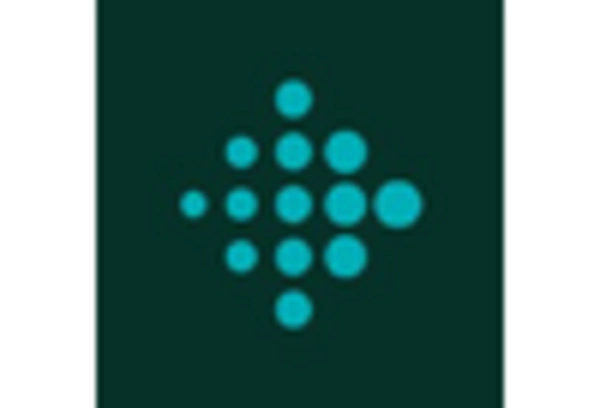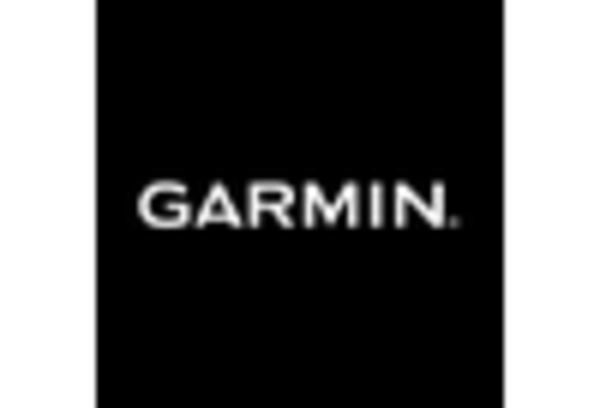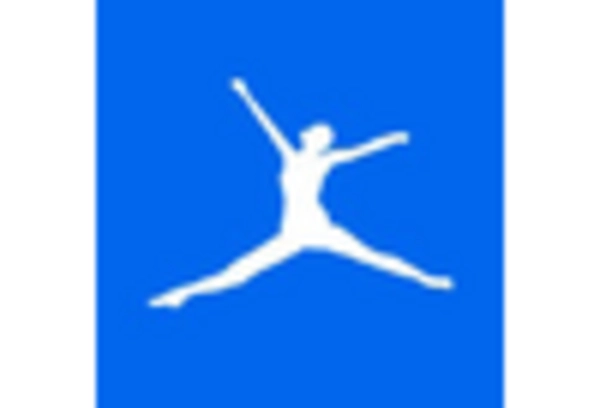Rising Health Awareness
The increasing awareness of health and wellness among individuals appears to be a primary driver for the Digital Health Tracking App Market. As people become more conscious of their health, they seek tools that can assist in monitoring various health metrics. This trend is reflected in the growing number of users engaging with health tracking applications, which has reportedly reached over 200 million users worldwide. The demand for features such as calorie tracking, exercise logging, and sleep monitoring is on the rise, indicating a shift towards proactive health management. Consequently, the Digital Health Tracking App Market is likely to experience substantial growth as more individuals prioritize their health and well-being.
Technological Advancements
Technological advancements in mobile applications and wearable devices are significantly influencing the Digital Health Tracking App Market. Innovations such as artificial intelligence and machine learning are enhancing the functionality of health tracking apps, allowing for more accurate data collection and personalized health insights. For instance, the integration of AI algorithms can provide users with tailored recommendations based on their health data. Furthermore, the market for wearable devices is projected to grow, with estimates suggesting a compound annual growth rate of over 20% in the coming years. This synergy between technology and health tracking applications is likely to propel the Digital Health Tracking App Market forward, attracting both developers and consumers.
Regulatory Support and Initiatives
Regulatory support and initiatives aimed at promoting digital health solutions are playing a pivotal role in shaping the Digital Health Tracking App Market. Governments and health organizations are increasingly recognizing the importance of digital health technologies in improving public health outcomes. Initiatives that encourage the development and adoption of health tracking applications are likely to create a favorable environment for market growth. For instance, funding programs and grants aimed at innovative health solutions can stimulate investment in the Digital Health Tracking App Market. As regulatory frameworks evolve to support digital health, the market is expected to expand, attracting new players and fostering innovation.
Integration with Healthcare Systems
The integration of digital health tracking applications with healthcare systems is emerging as a significant driver for the Digital Health Tracking App Market. As healthcare providers increasingly recognize the value of patient-generated data, there is a growing trend towards incorporating health tracking apps into clinical workflows. This integration allows for seamless data sharing between patients and healthcare professionals, enhancing the quality of care. Studies suggest that patients who use health tracking apps in conjunction with professional guidance experience better health outcomes. Consequently, this trend is expected to bolster the Digital Health Tracking App Market, as more healthcare organizations adopt these technologies to improve patient engagement and monitoring.
Increased Chronic Disease Prevalence
The rising prevalence of chronic diseases such as diabetes, hypertension, and obesity is a critical driver for the Digital Health Tracking App Market. As healthcare systems face mounting pressure to manage these conditions, individuals are increasingly turning to health tracking apps for support. Reports indicate that nearly half of the adult population in certain regions is living with at least one chronic condition, underscoring the need for effective self-management tools. Health tracking applications provide users with the ability to monitor their symptoms, medication adherence, and lifestyle choices, which can lead to improved health outcomes. This growing necessity for chronic disease management is likely to fuel the expansion of the Digital Health Tracking App Market.















